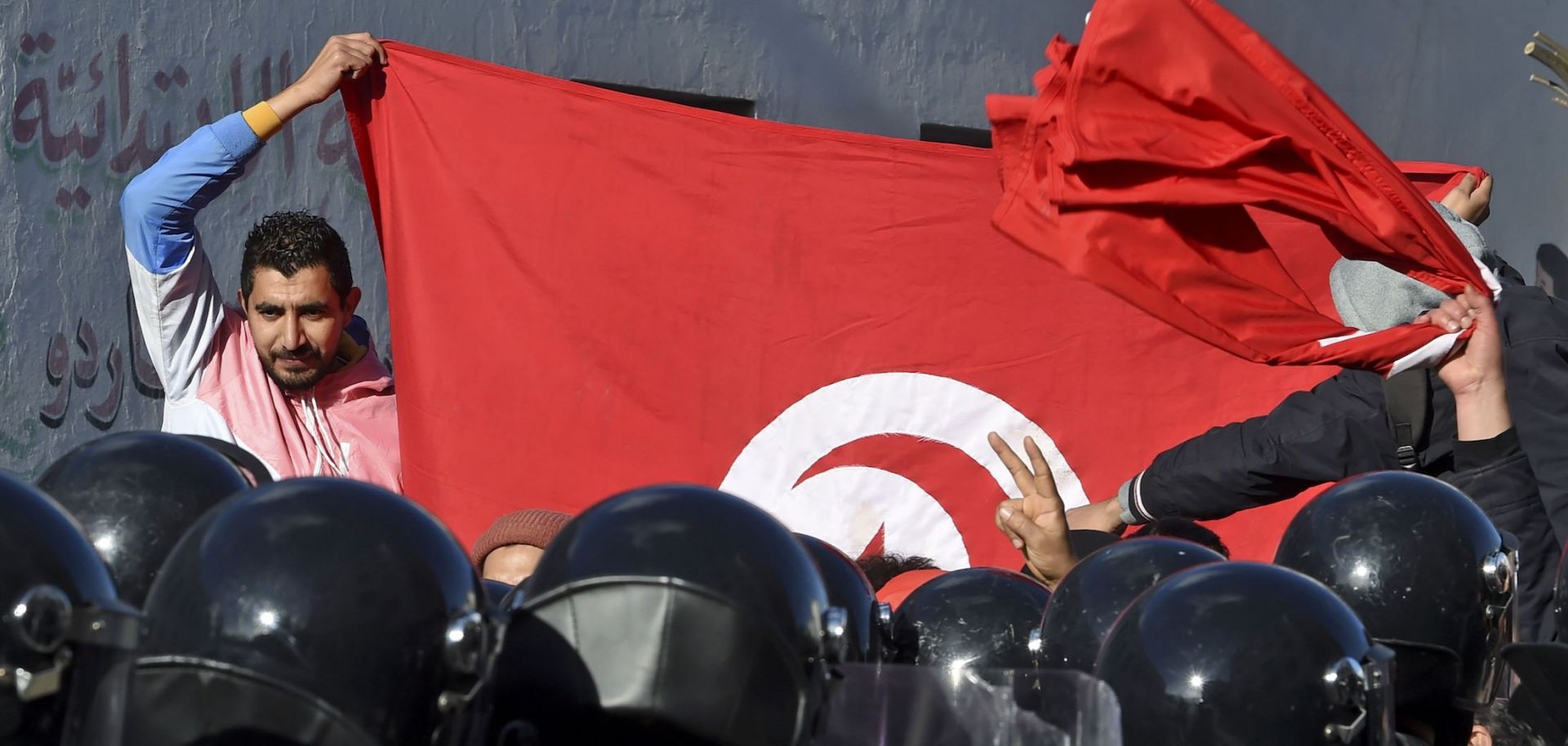A rash of protests in Tunisia could force the current government to step down, though any successor government won’t have the answers to the economic, social and political problems people are looking for. After only six months in office, Tunisian Prime Minister Hicham Mechichi’s government is already facing growing calls for its resignation. Since mid-January, Tunisia has seen persistent anti-government protests, with demonstrators demanding action on judicial reforms, government corruption and basic economic grievances. Anger over the Jan. 25 death of Haykl Rachdi, a young protester who was struck with a tear gas canister by Tunisian police, has since further galvanized participation in protests across the country, underscoring how the pressure on Mechichi’s government cuts across geographic and social lines....

